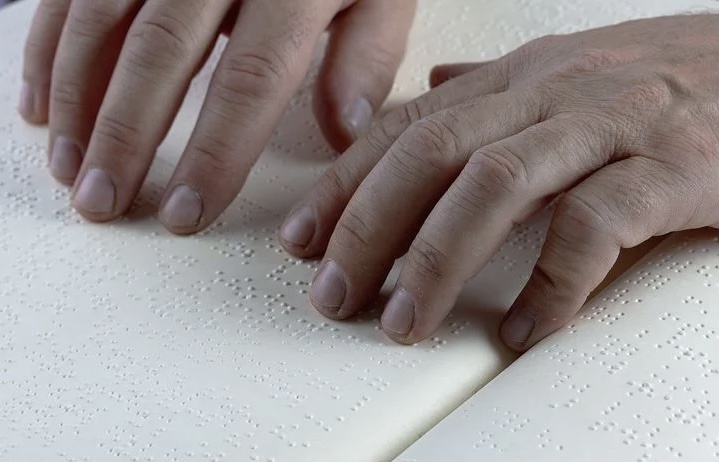Article by Clara Hickman
Despite there being approximately 360,000 people in the UK who are blind and partially sighted and an estimated 285 million people globally, 2021 is only the third year that World Braille Day will be celebrated. The United Nations General Assembly first officially recognised the day of inclusion and diversity in 2019.
The global pandemic has caused many extra hardships for the visually impaired who rely on touch to learn information and communicate which will have been extremely difficult to doduring Covid-19. The social distancing guidelines encouraged to be adhered to and the responsibility of trying to maintain two metres between people would have presented obvious difficulties for a visually impaired person.
Based in Malawi, the United Nations Development Programme (UNDP) created more than 4,000 Braille materials during Coronavirus on the government guidelines, prevention information and health care for partially sighted and blind people. These would have been a lifeline for them, enabling them to learn information and educate themselves on the virus, helping decrease the risk of them contracting it andpassing it to others.
Sight loss is an impairment that affects millions of people worldwide and it is important to raise awareness of Braille, a form of communication that helps visually impaired people with inclusion, independence and much more. It is “equality and is a building block to literacy and independence”, said the World Braille Foundation.
Braille has progressed a lot over the years with many pharmacies now offering Braille labels on medications. Braille label markers can now be purchased, allowing the visually impaired to label anything from medicines to food packages to cd’s, all a gateway to more independence.
In developing countries, children who are blind and partially sighted are unfortunately at a huge disadvantage to their sighted peers. Research conducted by the World Braille Foundation found a devastatingly high 95% of blind children in developed countries do not attend school due to the lack of training of specialist teachers and restricted access to basic materials like Braille paper.
Today it is Braille inventor Louis Braille’s birthday and is the day World Braille day is celebrated. Born in 1809, young blind Braille invented the tactile alphabet system of six dots in a 3×2 grid to allow visually impaired people to be able to read and write. Braille also represents letters, numbers and even symbols such as music notes.
It helps give them basic human rights equal to other people.
Only one in four partially sighted or blind people are thought to be in employment and 40% of visually impaired graduates are not in a job. The more awareness that can be raised of Braille is vital as it is a form of communication and learning that gives them more opportunity of a good future and an equal chance of employment.
World Braille Day is a chance to educate people on the communication methods for the visually impaired, all helping towards greater human rights and quality of life for blind and partially sighted people.




